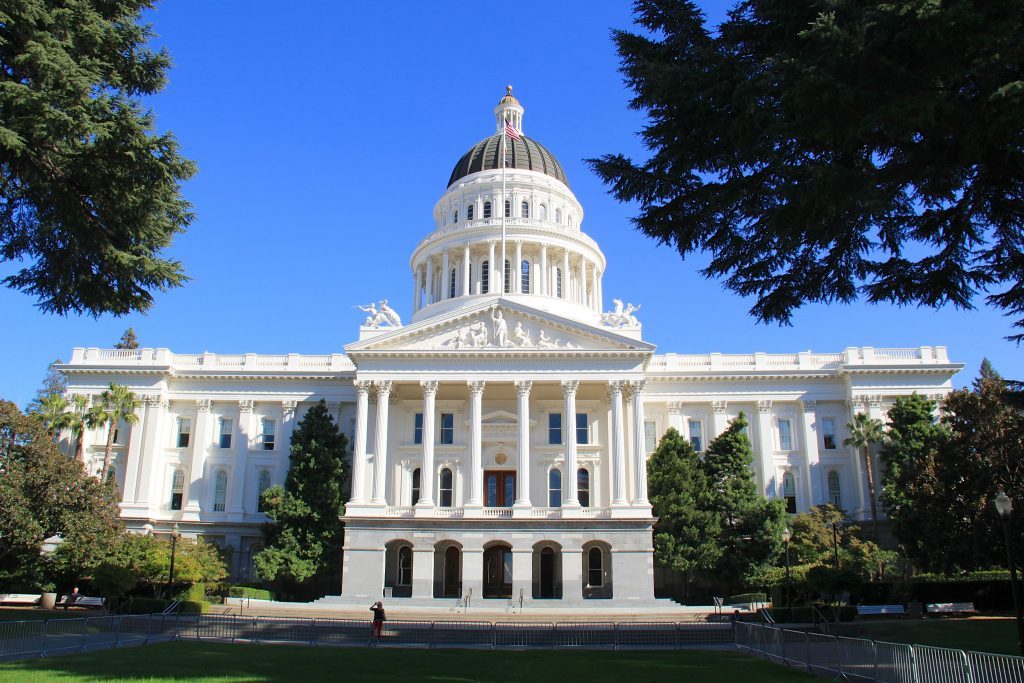
[dc]O[/dc]n June 30, the California Assembly Judiciary Committee passed SB 1146 by a margin of 7-2. The vote, taken along party lines, with the abstention of one Republican, means that the bill, which has already passed the California Senate, will now be passed on to the Assembly Appropriations Committee.
The Judiciary was originally slated to hear the bill on June 28, but the bill was modified on June 29, and the hearing was moved to June 30.Under the latest version of the bill, universities and colleges that receive financial assistance from the state or enroll students who receive state financial assistance, aka Cal Grants, may continue to enforce “rules of moral conduct” concerning sexuality, but only “if the rules are uniformly applicable to all students regardless of the student’s sexual orientation or gender identity.” “Married” student housing must be made available “both married opposite-sex and married same-sex couples.”
Under the latest version of the bill, universities and colleges that receive, or enroll students who receive, financial assistance from the state may continue to enforce “rules of moral conduct” concerning sexuality, but only “if the rules are uniformly applicable to all students regardless of the student’s sexual orientation or gender identity.” “Married” student housing must be made available “both married opposite-sex and married same-sex couples.”
The new version also says that the institutions may enforce “religious practices if these practices are uniformly applicable to all students regardless of the student’s sexual orientation or gender identity.” The bill would not require religious schools to conduct same-sex marriages in campus chapels.
Under the latest version, SB 1146 would give courts the right to force religious institutions to modify their activities to conform with the requirements of non-discrimination. Although the previous versions of the bill allowed for monetary awards for litigants who successfully sued non-conforming religious institutions, the latest version provides for “equitable relief.” In the words of the Judiciary Committee analysis “a plaintiff would not be entitled to damages, but only an injunction ordering the school to take some corrective action, whether it be to undo whatever action was taken against the person who brings the action, or to end the policy that gave rise to the action.”
The degree of state control over the personnel and internal actions of religious educational institutions has been an issue of particular concern to the California Assembly Judiciary Committee. Last July, the Assembly Judiciary held an informational hearing on “Workers’ Rights and Religious Employers after Hosanna-Tabor” in San Francisco. In the hearing background paper, the same attorney who has been analyzing SB 1466 for the Judiciary lamented that the Supreme Court decision had impeded the state’s “compelling interest” in protecting employees of religious institutions from”unlawful forms of employment discrimination.” Although the case was over a year old at the time, the hearing was held in response to the San Francisco Archdiocese’s announcement that it would be revising teacher contracts to include a new “morality clause” and to respond to fears that the clause would permit the Church to fire teachers whose private conduct in matters related to “gender identity, sexuality, abortion, and same-sex marriage” did not conform the Church teachings. Apparently, the state was trying to find a way to interfere with the Archdiocese’s decision but could not find a constitutional way to do so.
The authors of the bill are attempting draft the legislation in a manner that would pass muster under Employment Division v. Smith. The bill designed to be “facially neutral” and not to interfere with a religious right or to single out a religious group, but rather is a “law of general applicability” that would apply to all alike and that no exemption for a religious institution is necessary. However, a review of the legislative history will show that the bill is intended to interfere with the “free exercise” rights of religious colleges and universities.
The bill’s selective exemptions may invalidate the whole by violating equal protection rights of religious institutions. The bill allows for exemptions that place certain religious institutions on uneven ground with other religious institutions for arbitrary reasons. For instance, religious vocational training (i.e. a seminary) is exempt from the law, but schools that teach religion as a curriculum requirement for non-religion majors are not exempt. Certain classes, such a religion, are allowed to be discriminated against under the law, but not LGBTQ classifications.
The bill analysis indicates that a religious institution can decide only to allow members of a particular religion to enroll, but demonstrates that this ability to discriminate must be an “all or nothing” approach – in other words, a Catholic university could only enroll Catholic students, but a Catholic university could not enroll non-Catholic students and at the same time maintain its Catholic morality policies.
That the law does not prohibit discrimination based on religion but only on sexual orientation, shows that the bill is targeted at non-conforming religious institutions because of their beliefs. There is no pretense of neutrality.
Providing exemptions unevenly to the detriment of religious institutions may violate the equal protection clause.
So far it appears that the bill is going to pass the Assembly and end up on the governor’s desk before the end of the year, but even then, there are serious constitutional issues that will likely take this legislation into litigation for years.
The Judiciary Committee’s June 29, 2016, report notes that SB 1146 was opposed by the California Catholic Conference, Inc., California Family Alliance, Church State Council, John Paul the Great Catholic University, Loma Linda Universtiy, National Center for Law and Policy, Pacific Justice Institute, Pacific Union College, and “numerous individuals.”
Equality California, the City of Los Angeles, Los Angeles LGBT Center, Transgender Law Center, and Secular Coalition for California had written in support of the bill.
###
Photo: Front of California State Capitol, by David Fulmer, CC BY 2.0